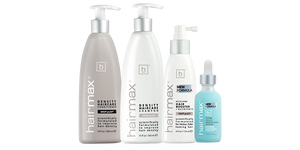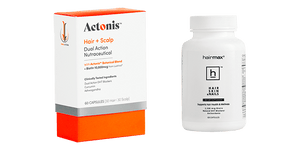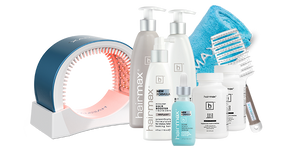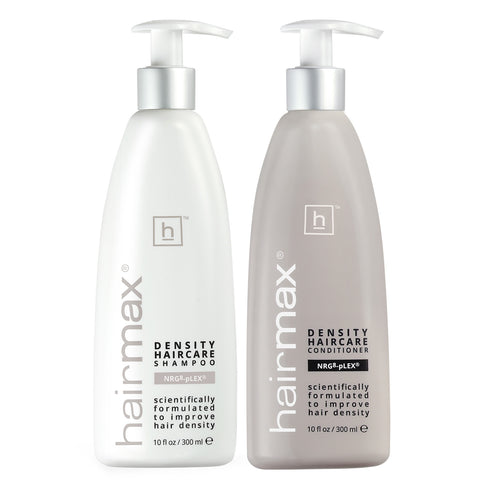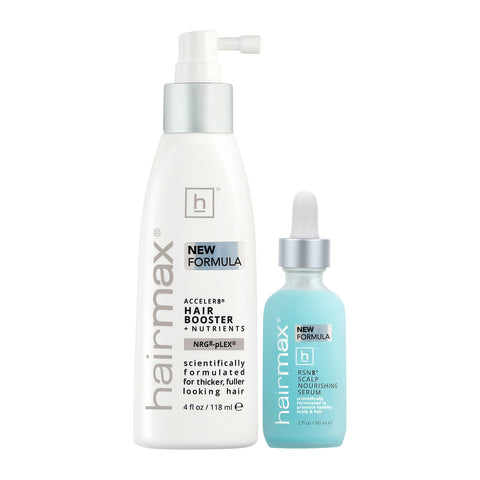Shedding the Weight Could Also Mean Shedding Your Hair
No matter what method people use to lose weight, the more weight they lose, the more likely they are to experience some temporary hair loss. Hair loss during periods of weight loss is generally due to a condition known as telogen effluvium, according to the American Osteopathic College of Dermatology. The condition is usually resolved when the person stops losing weight and starts their “maintenance” eating plan which is more nutritionally balanced to gradually increase their calorie intake. While you do need to noticeably reduce your calorie intake for weight loss, when you are losing a lot of weight the body senses that starvation is happening and starts to protect itself.
Extreme caloric restriction can cause hair loss because as a protective mechanism, energy is re-directed to more essential needs, like preserving muscle, and there is not enough energy leftover to support the less essential tasks, such as hair growth. Keep in mind, however, that hair loss can also be a symptom of certain medical problems such as thyroid disorders, pituitary or parathyroid glands, or fungal infections. Also, stress and hormonal changes can trigger temporary hair loss too.
In one study reported in medical journals: nine patients experienced significant hair loss of 25% to 50% two to five months after starting a vigorous weight reduction program resulting in weight loss of 25 to 55 pounds.
Re-growth of hair occurred within several months. Three patients had experienced hair loss closely following a successful weight reduction program on several occasions. Rigorous caloric restriction with subsequent inadequate energy supply of the hair matrix is thought to be the cause for the hair loss
Advice and Tips:
Make sure you are eating enough calories.
The American Council on Exercise advises no more than 2 lbs. a week for healthy weight loss. If you are losing more than that, you may be at risk for hair loss.
Eat enough protein, which is a major component of the hair.
Protein needs are based on individual factors such as body weight and activity levels. Lack of protein and vitamin supplementation can be a factor for some individuals during weight loss as can a low fat intake. Many experts recommend between .8gm and 1gm of protein per pound of of body weight.
Incorporate whole grains, fruits and vegetables into your diet.
Whole grains contain iron which, according to the National Anemia Action Council, is a major factor in hair loss. Fruits and vegetables also contain vitamins A, C and E as well as zinc, which all contribute to hair growth.
Take a nutritional supplement
Try the HairMax nutritional supplements specifically designed with hair loss in mind. Our natural vitamin complex is blended with clinically proven hair strengtheners to help support healthier hair. HairMax Dietary Supplements provide essential nutrients to help your hair look its best! They also strengthen nails and contribute to healthy looking skin.


